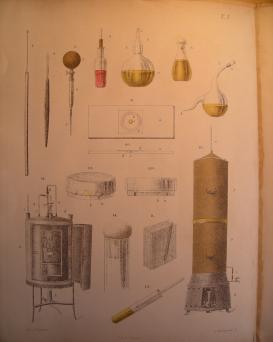The PhD project analyzed media and techniques of knowledge transfer in medical bacteriology. It explored how texts and pictures as well as the circulation of people, objects, and animals were employed in order to mobilize the newly developed field of bacteriology from its original laboratories in Berlin and Paris to different geographical and social spaces. The project contributed to describing knowledge transfer as a complex and dynamic process, putting particular emphasis on modes of mutable mobilizations of laboratory networks. It also looked at strategies to merge germ theory and practices with the specificities of the local and social contexts to which it is transferred.
By focusing on knowledge transfer to and within the Polish lands, and later the 2nd Polish Republic, the project shed light on the mostly unexplored history of medicine in Central Eastern Europe. It aimed to show that Polish doctors and scientists played a vital role in the production and stabilization of bacteriological knowledge in Europe around 1900. Therefore, it also contributed to decentering Western European historiography on medicine and science, aiming at a more pluralistic account of knowledge production in the modern age.

